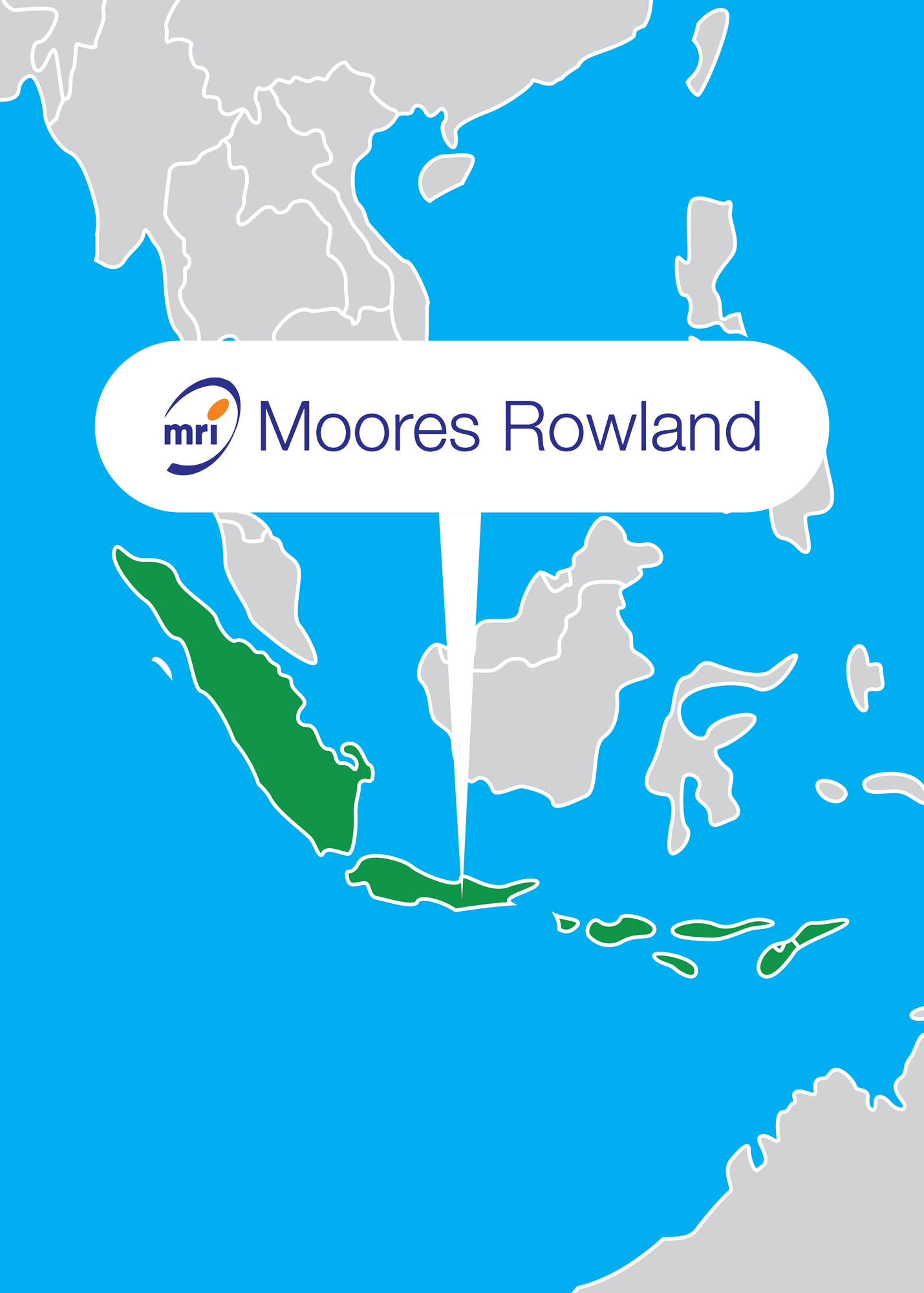Praxity Global Alliance - Case Study
Redefining ESG with Moores Rowland Indonesia
Moores Rowland Indonesia argues that governance, not retreat, is the future of ESG.

It is no secret that global expectations are changing.
ESG, once the darling of boardrooms across the world, has slowly been pushed out in the recent months and years. From countries distancing themselves from existing climate agreements - as seen in the pattern of the US joining and withdrawing from the Paris Climate Accord, and stock exchanges and regulators easing reporting and due diligence - to a more subtle de-prioritisation of climate requirements in corporate spheres, to an all-out attack on DEI, it is clear a complex road lies ahead.
But what if we were to view this familiar script a little differently?
It’s natural to perceive the current state of affairs as a fork in the road. But perhaps this shift away from ESG policies should instead be seen as a temporary setback.
Momentum stalls, but purpose remains
Progress is rarely linear - change takes many iterations. To break from the usual narrative, this moment in time can instead be viewed as a minor roadblock. Setbacks certainly feel significant at the given moment but, in hindsight, the trajectory will feel more certain. In order to ensure this comes into reality, companies need only listen to their various stakeholders – their customers, personnel, investors - and if they do, they will continue to demand a high level of ESG compliance within their companies.
Incidentally, it’s crucial that we do not let setbacks overshadow incredible evidence of progress. Breaking ‘ESG’ down into its three constituent parts - Environmental, Social and Governance - strides forward are being made in each. When it comes to the ‘E’ of ESG, a number of consultants are pushing forward, often establishing dedicated divisions within their practices.
Samantha Louis, Praxity’s CEO comments:
This drive is demonstrated within the Praxity Alliance, where the ESG Working Group is active, engaged and genuinely connected with each other. By transparently sharing best practices, tackling challenges together and learning from client successes, the group is helping to keep ESG foremost in the conversation, and showing the industry what true collaboration looks like.

Daxin COO Yue Hong Meets with Daxin Saudi Chairman Abdullah Fahad Al sahli. Credit: Daxin Global

Steffen Ahrens
Praxity Chairman and FALK Managing Partner, Germany’

A new agenda for ESG
Under the leadership of James Kallman, Moores Rowland Indonesia has in the past focused on the ‘S’: the Social aspect of ESG. This includes working with the Indonesian Financial Services Authority to emphasise Human Rights as foundational to Sustainability Reporting, alongside leading contributions to the Government Working Group tasked with Business and Human Rights. With Mandatory Human Rights Auditing planned for 2027 along with IFRS S1 and S2 reporting, Indonesia has a claim to global leadership in this space and Moores Rowland Indonesia is proud to be a pioneer.
But with trade wars and protectionism, the ‘G’ - Governance - has become more complex with expanding sanctions regimes and a feeling that anti-corruption somehow equates to anti-competitiveness. Amidst a changing landscape, and after decades of successfully introducing sustainable environmental and social best practices in ESG reporting, Moores Rowland Indonesia has been exploring opportunities with Steptoe, a prominent US law firm based in Washington D.C.
To that end, the two firms recently hosted a workshop in Jakarta on Strengthening Compliance and Risk Management. Attended by executives and professionals with legal, compliance, risk management, sustainability and corporate governance responsibilities, the workshop’s keynote speaker, the Managing Director of Internal Control of Indonesia’s newly established Sovereign Wealth Fund, Danantara. Also speaking were Marzuki Darusman, former Indonesia attorney general and a notable international human rights advocate who is currently a Moores Rowland Indonesia senior advisor, as well as partners from the Steptoe office in Hong Kong.
Under guidance from Moores Rowland Indonesia, some of those same companies have established a formal ethics and compliance office and overhauled their internal audit procedures to be more transparent and compliant. In some cases, clients have appointed independent directors with expertise in ESG risk management and regulatory compliance. Perhaps most notably, some have introduced a whistleblower protection policy and created secure channels for anonymous internal reporting.
Working together as appropriate, the support provided to clients in Indonesia by Moores Rowland Indonesia and Steptoe highlights an important evolution in ESG reporting. While environmental and social initiatives often grab headlines, governance - the systems and policies that ensure accountability, transparency and ethical leadership - is what truly sustains them. Moores Rowland Indonesia is showing how a holistic view of ESG, and focusing on governance, can solidify and even amplify the gains made in other areas.
Environmental and social initiatives require strategy, resources and consistent oversight - all of which fall under the umbrella of governance. Moores Rowland Indonesia is showing companies in Indonesia and Southeast Asia how governance also provides the framework for setting ESG goals, tracking progress, and publicly reporting results - a core part of sustainable business performance moving forward.
ZM: How are members firms adapting services to support clients in meeting ESG reporting requirements?
SA: Our impact matters. The world around us faces innumerable global challenges; it’s important that we help clients navigate and comply with changing regulations. Certainly, ESG is ever more critical. To that end, our Member Firms have worked diligently to provide new service lines. It’s important to note that ESG requirements are inextricably linked to global shifts; we already see particular emphasis on ESG service lines in Europe, and the US Presidential Election and EU Omnibus Regulation will inevitably have further impact.
Accountability and transparency are essential. Equally, it’s important that the regulatory burden does not become too high. With that in mind, the introduction of the Omnibus Regulation should go a long way in significantly reducing bureaucracy. This is particularly true insofar that it will reduce the number of reporting obligations and, in turn, naturally reduce overlap. In turn, this creates opportunities for our Member Firms to lead on ESG reporting through proactively responding to changes in regulation.
Visit: www.praxity.com